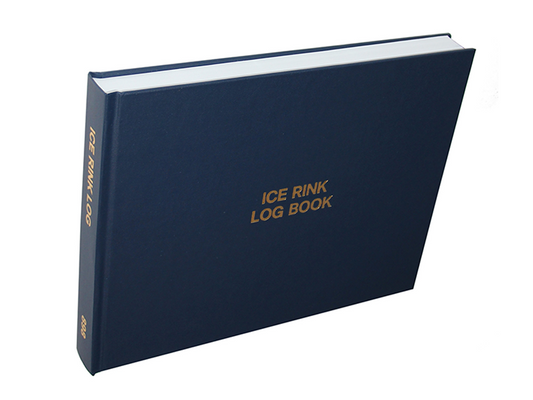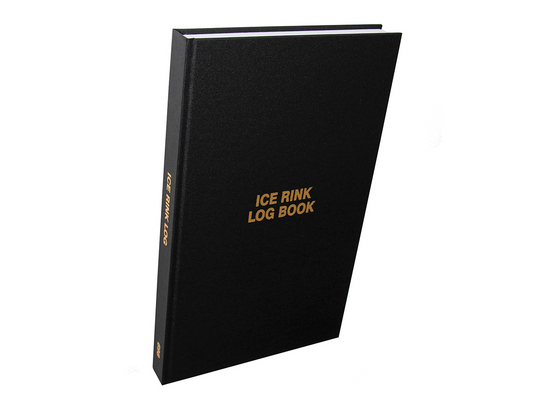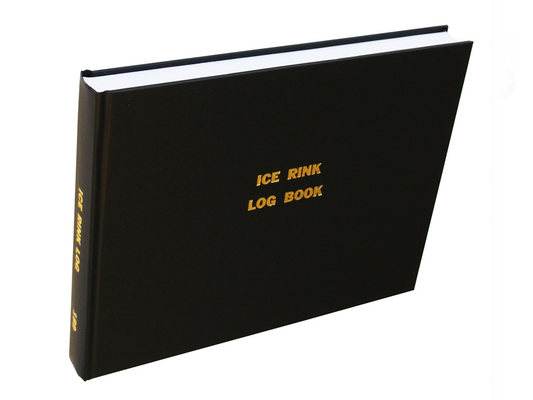-
Ice Rink / Refrigeration (4 Compressors - Freon) Log Book #898
Regular price $58.00 USDRegular priceUnit price per -
Ice Rink / Refrigeration Log Book (3 Compressors - Brine / Ammonia) # 188
Regular price $58.00 USDRegular priceUnit price per -
Ice Rink / Refrigeration Log Book (3 Compressors - Glycol / Ammonia) #698
Regular price $58.00 USDRegular priceUnit price per -
Ice Rink / Refrigeration Log Book (5 Compressors) - Brine / Glycol / Ammonia # 189
Regular price $58.00 USDRegular priceUnit price per
The Role of Log Books in Ice Rink/Refrigeration System Maintenance
-
Regulatory Compliance
Ice rinks are subject to regulations and standards related to safety, environmental impact, and energy efficiency. Log books provide a documented trail of compliance with these regulations, helping facility managers demonstrate adherence during inspections.
-
Temperature and Humidity Control
Refrigeration log books enable operators to record temperature and humidity levels in different areas of the ice rink facility. Maintaining optimal conditions is essential for ensuring the quality of the ice surface, player safety, and energy efficiency.
-
Energy Management
Log books help track energy consumption related to refrigeration systems. Monitoring and recording energy usage allows facility managers to identify trends, assess efficiency, and implement measures to reduce energy costs.
-
Maintenance Records
Regular maintenance is essential for the smooth operation of refrigeration systems and ice-making equipment. Log books provide a centralized platform for recording maintenance tasks, including inspections, repairs, and preventive measures.
-
Ice Surface Quality
Operators can use log books to document observations related to the quality of the ice surface. This includes factors such as thickness, hardness, and any issues like uneven freezing or surface imperfections. Consistent monitoring ensures a safe and enjoyable environment for users.
-
Equipment Monitoring
Refrigeration log books allow for the tracking of key equipment performance metrics, such as compressor operation, pump functionality, and refrigerant levels. This information is vital for identifying potential issues and planning maintenance.
-
Emergency Response
In the event of refrigeration system malfunctions or emergencies, log books serve as a quick reference guide for troubleshooting. Recorded details facilitate a prompt response, minimizing downtime and potential damage.
-
Environmental Stewardship
Ice rinks are increasingly focused on sustainability and environmental responsibility. Log books help track refrigerant usage, leak detection efforts, and other environmental considerations, contributing to responsible facility management.
-
Ice Maintenance Schedule
Log books provide a platform for scheduling routine ice maintenance tasks, such as resurfacing, edging, and painting. Following a consistent maintenance schedule helps preserve the integrity and appearance of the ice surface.
-
Communication Among Staff
Log books serve as a communication tool among staff members involved in ice rink operation and maintenance. Information about ongoing tasks, observations, and upcoming maintenance can be easily shared and referenced.
-
Historical Reference
A well-maintained log book creates a historical record of the ice rink's operation and maintenance. This historical reference is valuable for identifying trends, assessing the performance of equipment over time, and making informed decisions.
-
Training and Knowledge Transfer
Log books are useful for training new staff members. They provide insights into the facility's history, operational procedures, and maintenance practices, facilitating knowledge transfer among staff.
Ice rink and refrigeration log books are crucial tools for the effective operation, maintenance, and safety of ice rinks. These log books serve as comprehensive records of various activities, measurements, and maintenance tasks associated with the refrigeration systems and ice surfaces.
Not sure where to start?
We are here to help!






